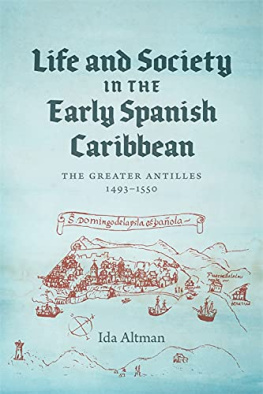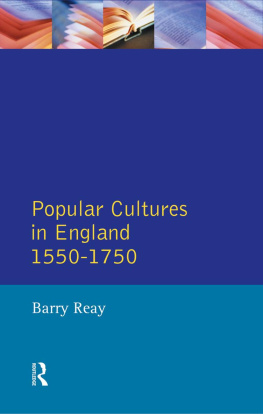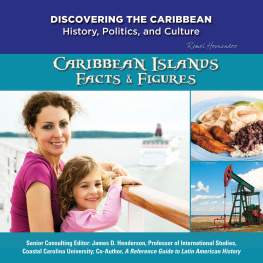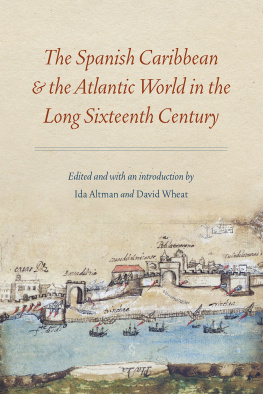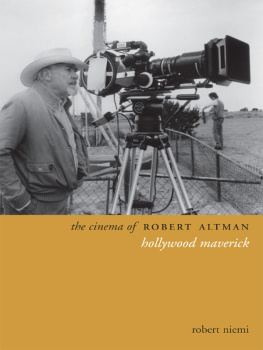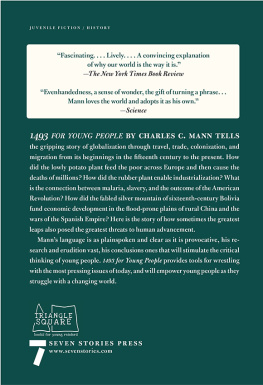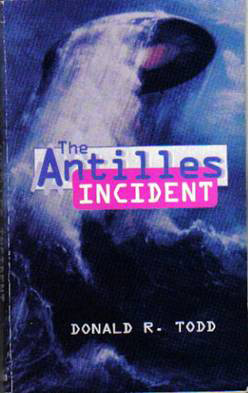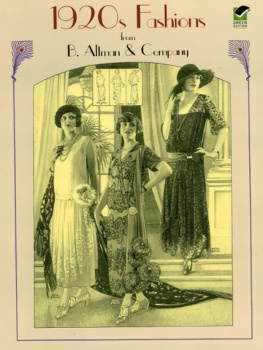Ida Altman - Life and Society in the Early Spanish Caribbean: The Greater Antilles, 1493–1550
Here you can read online Ida Altman - Life and Society in the Early Spanish Caribbean: The Greater Antilles, 1493–1550 full text of the book (entire story) in english for free. Download pdf and epub, get meaning, cover and reviews about this ebook. year: 2021, publisher: LSU Press, genre: Politics. Description of the work, (preface) as well as reviews are available. Best literature library LitArk.com created for fans of good reading and offers a wide selection of genres:
Romance novel
Science fiction
Adventure
Detective
Science
History
Home and family
Prose
Art
Politics
Computer
Non-fiction
Religion
Business
Children
Humor
Choose a favorite category and find really read worthwhile books. Enjoy immersion in the world of imagination, feel the emotions of the characters or learn something new for yourself, make an fascinating discovery.
- Book:Life and Society in the Early Spanish Caribbean: The Greater Antilles, 1493–1550
- Author:
- Publisher:LSU Press
- Genre:
- Year:2021
- Rating:3 / 5
- Favourites:Add to favourites
- Your mark:
- 60
- 1
- 2
- 3
- 4
- 5
Life and Society in the Early Spanish Caribbean: The Greater Antilles, 1493–1550: summary, description and annotation
We offer to read an annotation, description, summary or preface (depends on what the author of the book "Life and Society in the Early Spanish Caribbean: The Greater Antilles, 1493–1550" wrote himself). If you haven't found the necessary information about the book — write in the comments, we will try to find it.
Ida Altman: author's other books
Who wrote Life and Society in the Early Spanish Caribbean: The Greater Antilles, 1493–1550? Find out the surname, the name of the author of the book and a list of all author's works by series.
Life and Society in the Early Spanish Caribbean: The Greater Antilles, 1493–1550 — read online for free the complete book (whole text) full work
Below is the text of the book, divided by pages. System saving the place of the last page read, allows you to conveniently read the book "Life and Society in the Early Spanish Caribbean: The Greater Antilles, 1493–1550" online for free, without having to search again every time where you left off. Put a bookmark, and you can go to the page where you finished reading at any time.
Font size:
Interval:
Bookmark:
Life and Society
IN THE
Early Spanish Caribbean
THE GREATER ANTILLES14931550
Ida Altman
LOUISIANA STATEUNIVERSITY PRESS
BATON ROUGE
Published by Louisiana State University Press
lsupress.org
Copyright 2021 by Louisiana State UniversityPress
All rights reserved. Except in the case of briefquotations used in articles or reviews, no part of this publication may bereproduced or transmitted in any format or by any means without writtenpermission of Louisiana State University Press.
DESIGNER: Michelle A. Neustrom
TYPEFACE: Arno Pro
The maps were created by Michael Waylen.
Cover illustration: Sketch of Santo Domingo byJuan Escalante de Mendoza, ca. 1570s, from his Itinerario de navegacin de las mares y tierras occidentales , MS in Museo Naval, Madrid.
LIBRARY OF CONGRESS CATALOGING-IN-PUBLICATIONDATA
Names: Altman, Ida, author.
Title: Life and society in the early Spanish Caribbean : the Greater Antilles, 14931550 / Ida Altman.
Description: Baton Rouge : Louisiana State University Press, [2021] | Includes bibliographical referencesand index.
Identifiers: LCCN 2021000251 (print) | LCCN2021000252 ( ebook ) | ISBN 978-0-8071-7597-2 (cloth) |ISBN 978-0-8071-7578-1 (paperback) | ISBN 978-0-8071-7618-4 (pdf) | ISBN978-0-8071-7619-1 ( epub )
Subjects: LCSH: Antilles, GreaterHistory16thcentury. | Antilles, GreaterEthnic relations. | Antilles, GreaterSocialconditions. | Antilles, GreaterRelationsSpain. | SpainRelationsAntilles,Greater. | SpainColoniesAntilles, GreaterAdministration.
Classification: LCC F 1741 .A 462021 (print) | LCC F1741 ( ebook ) | DDC 972.9/02dc23
LC record available at https://lccn.loc.gov/2021000251
LC ebook recordavailable at https://lccn.loc.gov/2021000252
My interest in the early Spanish Caribbean datesback many years. While doing doctoral work in history at Johns HopkinsUniversity, I wrote a paper on Spanish society in Mexico City following theconquest. That research led me to wonder about not only the peninsular originsof the Spaniards who went to live in Mexico but also the connections betweenearly society there and in the Caribbean, a topic that seemed surprisinglyunderstudied; surely that history would have important implications forunderstanding subsequent developments in New Spain and elsewhere in SpanishAmerica. That paper eventually became an article entitled Spanish Society inMexico City after the Conquest, published in the Hispanic American HistoricalReview. Notwithstanding its limitations, the article pointed to significantprecedents for Mexican society in the Caribbean, noting, for example,Squabbles between local and crown officials and the extensive involvement ofall of them in the local economy (including trade in Indian slaves)... andthe claims and presumptions of the Colns and firstconquerors all played a prominent part in ordering society in the Caribbean, aswould similar factors in early Mexico and Peru (445).
In 1990 I received funding from the NationalEndowment for the Humanities that allowed me to spend part of a summer doingresearch at the Archive of the Indies in Seville, which houses nearly all theextant documentation on the Spanish Caribbean in the first half of the sixteenthcentury. Although I used much of the material I foundin one way or another, I did not pursue the research and indeed only returnedto it, tentatively, when I received a yearlong grant from NEH in the mid-2000s.Although most of that fellowship period was devoted to another project, I alsolooked for sources on an Indigenous revolt led by the man known as Enriquillo , or Enrique, that took place in Hispaniola inthe first third of the sixteenth century. The result was the 2007 publicationof The Revolt of Enriquillo and the Historiographyof Early Spanish America, an article focused on his life and rebellion andtheir implications for our understanding of the early Spanish Caribbean and therest of Spanish America.
That article probably has been read more thaneverything else I have published, most likely because of the human appeal ofEnriques story but perhaps also because we know so little about the time andplace in which he lived. Writing about Enrique helped to convince me that thehistory of the Spanish Caribbean in the first half of the sixteenth centurymerited serious consideration. For many years it has received such attentionfrom Hispanophone scholars, who have combed thearchives for relevant material, transcribing and publishing many volumes oforiginal documentsan enormous boon to scholarship. In more recent years,especially, these scholars have used this material to address the history ofSpaniards settlement of the Greater Antilles and the impact of their presenceon the Indigenous peoples of the islands and the enslaved Africans whomEuropeans brought to the Caribbean.
I am beholden to scholars such as Esteban MiraCaballos, Genaro Rodrguez Morel, Jalil Sued Badillo, and Francisco Moscoso for their studies of early institutional andsocioeconomic development and the labor regimen that was imposed in the GreaterAntilles, to Consuelo Varela for her research on Columbus and the period inwhich he was active, and to Juan Gil for his work on Columbus and the yearsthat followed. Their extensive research in the archives greatly enriches thisstudy. I discuss the historiography of the sixteenth-century Spanish Caribbeanin my article The Spanish Caribbean, 14921550 and in the introduction to TheSpanish Caribbean & the Atlantic World in the Long Sixteenth Century, abook coedited with David Wheat. It is my hope that, among other things, thepresent book will help to familiarize an English-speaking audience with thisimportant scholarship.
I have been most fortunate in the friends, colleagues,and students who have shared ideas, insights, and even their research anddocuments and encouraged me to bring this work to completion. First and foremost I thank David Wheat, who over the years hasprovided much-appreciated advice, insight, and reflections based on his ownextensive research and scholarship, as well as documents, bibliography, andassurance that writing the book was worth the effort. (I hope that has provedtrue.) I am very grateful as well to James Boyden, Shannon Lalor, ThiagoKrause, and an anonymous reviewer who read the entire manuscript and providedthoughtful and valuable suggestions. I also thank the many people who over theyears have helped me to clarify my thinking and aims in this research or haveread and discussed parts of the manuscript. In no particular order, theseinclude Sarah Cline, Kris Lane, Brian Hamm, Cacey Farnsworth, Nina Caputo, Oren Okhovat , Sara T. Nalle , Gabriel Aviles de Rocha, Stuart Schwartz, MattChilds, Philip Morgan, Richard Kagan, and Franklin Knight. Many thanks toJudith Oppenheimer and Dan Hubbell for listening and responding kindly to myexpressions of self-doubt. Paul Losch , formerdirector of the University of Florida Latin American Library, was an unfailingsource of support. I also thank Laurie Taylor, senior director for librarytechnologies and digital strategies at the University of Florida, forincorporating into the Digital Library of the Caribbean the biographical filerelated to this book. I am very fortunate to have had Alisa Plant, director ofLSU Press and dear friend, as my editor. I wish to thank as well the managingeditor, Catherine Kadair , for her help and excellentwork, and Michael Waylen for the maps.
I finished writing this book in early 2020 as thecoronavirus pandemic was reaching the United States, bringing echoes of thedevastating diseases that in the past ravaged, and in some places nearlyobliterated, entire groups of people. In the first half of the sixteenthcentury the Greater Antilles was such a place. This book is dedicated to thememory of the Indigenous people of the early Spanish Caribbean, to the manyvictims of COVID-19, especially the heartbreakingly disproportionate numbers ofNative Americans and people of color whose deaths in the United States werelargely preventable, and to all the health care workersdoctors, nurses,technicians, orderlies, custodianswho gave their lives working to save them.It is dedicated as well to the memory of Richmond F. Brown.
Font size:
Interval:
Bookmark:
Similar books «Life and Society in the Early Spanish Caribbean: The Greater Antilles, 1493–1550»
Look at similar books to Life and Society in the Early Spanish Caribbean: The Greater Antilles, 1493–1550. We have selected literature similar in name and meaning in the hope of providing readers with more options to find new, interesting, not yet read works.
Discussion, reviews of the book Life and Society in the Early Spanish Caribbean: The Greater Antilles, 1493–1550 and just readers' own opinions. Leave your comments, write what you think about the work, its meaning or the main characters. Specify what exactly you liked and what you didn't like, and why you think so.

